
After a lifetime of hard work, it is time for a much-needed and well-deserved rest. There is a reason many call retirement the “Golden Years” - because that is what they are: having the time, energy, and money to enjoy a more carefree life knowing you have contributed to making society and the world a better place.
With so much free and available time, some people decide to take on new hobbies – woodworking, beekeeping, gardening, among many others. Some decide to travel and experience entirely different cultures and enjoy everything life has to offer. Others turn their day-to-day completely around and choose to move abroad and settle down in another country.
The world is broad and wide and there are so many countries out there where it is possible to just relax, enjoy your days, whether by the pool, or the beach, and always have the sun high in the sky shining brightly. None more so than Portugal and moving there is easier than you think with visas to retire in Portugal.
Why Retire in Portugal?

Portugal is a country where excitement is to be had at every corner and where, sometimes, time stands still. Portugal merges the best parts of living in a modern country with a strong and dependable infrastructure, and a certain antique charm that is consistently harder to find. To say it is a paradise in the broader European landscape is an understatement, and though it has its downsides too, it is genuinely one of the best countries to retire to and live in – and countless retirees agree, having long made Portugal their home away from home.
But why do so many choose Portugal time and again? For starters, as inflation and the cost of living keep rising everywhere else, Portugal remains an affordable haven in 2024 for all types of budgets – with many goods and services being priced considerably lower than in many countries like the United States and the United Kingdom.
Portugal hardly stops there – its favourable climate offers plenty of sunshine, more than 300 days a year. Its long stretches of sandy beaches and crystal-clear waters make it perfect to catch some Vitamin D and to have that unique feeling when the sunlight warms your skin. Portugal’s clean air quality is among the best in Europe, and for those who want to move to a climatically and environmentally wealthier country, there really is no other choice but Portugal.
Moreover, Portugal is one of the safest countries in the world. Though caution is always advised, especially in the larger cities, you will not typically find any issue whatsoever in walking alone at night in Portuguese streets or have to worry about any potential social or political turbulence.
Did you know that you will hardly need to worry about the language barrier? Communication is key and since the Portuguese are extremely fluent in English, you will get by just fine in Portugal even if you do not speak a word of Portuguese. While they will always appreciate seeing someone make the effort to speak the language and understanding the basics will benefit you overall, there is no significant need to learn the Portuguese language in-depth.
The cherry on top of the cake is found in how easy it is to obtain Residency – the ability to legally live in Portugal for an extended period of time. There are many official, government-approved residency visas a retiree can pursue, including the Golden Visa, the business-driven D2 Visa, and the retirement-oriented D7 Visa.
With so many reasons as why Portugal is the perfect destination for retirement, the question becomes – well, are there any reasons not to move to Portugal? The honest answer is: yes. But is there any country on Earth that does not have any downsides whatsoever? The beautiful part is that, despite the less than good parts, Portugal still has it all – a blend of natural beauty, enormous cultural and historical wealth, safety, and political stability a welcoming, friendly atmosphere, a lower cost of living, truly astounding weather – making it a perfect place to embark on a joyful and serene retirement journey.
Who Can Retire in Portugal?
Just about anyone can retire to Portugal. However, prospective retirees should research and understand the specific requirements involved with moving and retiring to Portugal. Regardless, Portugal is open to (almost) all individuals from various backgrounds and nationalities – welcoming retirees who wish to spend their Golden Years in Portugal.

EU Citizens
Retirement in Portugal for EU Citizens is easy and effortless. If you want, you can literally relocate to Portugal tomorrow – if you already have a place to stay. If not, Portugal Homes can advise you on the matter – we have the best properties available for sale on the market.
The freedom of movement granted by EU Citizenship is one of the EU Passport’s greatest advantages – not just from a travel perspective, where it is great to not have to worry about passports and visas, but from a retirement lens, too. For instance, Swede retirees can easily exchange cold and dreary Sweden for warm and sunny Portugal in the snap of the fingers and enjoy their Golden Years - all they will need to do is register with the local authorities after 90 days have gone by as Residents and not have to worry about any further hassles.
Third-Country Citizens
Third-Country citizens, meaning any national from a country not within the European Union (EU) or the European Free Trade Association (EFTA) - which both create the Schengen Area (except for Cyprus and Ireland) - will have to obtain a residency visa before retiring to Portugal.
A residency visa is any official, government-sanctioned programme that lets individuals legally reside and live in Portugal. Residency visas open the door to Portuguese & EU Citizenship and are the perfect platform for third-country retirees seeking to establish Portugal as their retirement destination.
Portugal harbours a select category of residency visas, which are issued for the most varied of reasons, including, but not limited to work, study, and investment. Disregarding the first two, residency by investment visas are what may be construed as the retirement visa in Portugal. Out of these, 3 stand out: the Golden Visa, the D2 Visa, and the D7 Visa.
What is the Easiest Way to Retire in Portugal?
The simplest, fastest, and easiest way to retire to Portugal is to get either Residency, a term related to Citizenship. These do not hold the same meaning legally – and are frequently used interchangeably, which can understandably lead to confusion among prospective expats looking to retire in Portugal.
While any EU citizen can simply decide to relocate, third-country nationals just have one extra step to take – which is to get Residency. This legal status, enabling expats to stay in a country can be obtained through a residency by investment visa.
The key difference between these visas and any others is that they are Residency by Investment Visas with a much faster, seamless process, and overall easier to obtain – while still having the same 5-year pathway toward Permanent Residency and Citizenship.

Which Residency by Investment Visa Do I Need to Retire to Portugal & Who Can Apply?
Due to their nature, any Residency by Investment Visa can serve the purpose of being a Portugal Retirement Visa.
Golden Visa
The Golden Visa is one of the top Residency by Investment Visa programmes in Portugal.
Retirees, investors, and expats were able to buy properties as affordable as €280,000 and obtain Residency, which from October 2023 onward, is no longer possible. In the aftermath, the D2 and the D7 Visas have gained relevancy in the Portuguese landscape, the Golden Visa through Investment Funds continues to be a solid, reliable choice for retirees seeking to move to Portugal.
The current format of the Golden Visa enables a variety of options, including donations, contributions, the creation of jobs, and subscriptions to investment funds as an eligible path to Residency in Portugal. The latter option gained the most traction following the discontinuation of the Real Estate option. With a minimum of €500,000, retirees are able to subscribe to an investment fund and obtain Residency with the Golden Visa.

D2 Visa
The D2 Visa is a Golden Visa alternative and an excellent Residency by Investment programme. At its core, the D2 is a business-driven residency visa. It intends to entice foreign-based individuals to create a new business or either partially or fully acquire an already existing business in Portugal to stimulate its economy.
Do not disregard the D2 just because it is geared toward the operation of a business. Despite its underlying goal, it is still a residency visa, and Portugal Homes has the perfect solution with our Mátria investment options starting at €280,000. We will take care of all the business-related side, while you lean back and enjoy your hard-earned rest.

D7 Visa
The Portugal D7 Visa is the most common choice among retirees. While it is often deemed the “Portugal Retirement Visa,” it is not exclusive to retirees. Rather, if we have to put a label on it, the D7 Visa programme is more akin to a “Passive Income Visa”.
Anyone with passive income – e.g.: retirees - sufficiently large to support oneself for a full year in Portugal can apply for the D7 Visa. The minimum amount to apply is a year’s worth of the Portuguese minimum wage, which currently, as of May 2024, is €820,00 per month (around USD $884,00, or £703,00). However, this minimum amount may vary depending on how many family members you include in the application.
The passive income must originate from legal sources. For instance: pension funds, dividends, own business income, bonds, investments, and real estate rentals, among others. Providing proof of passive income, health insurance coverage, and a clean criminal record will be key.
Since the D7 Visa does not permit its holders to work in Portugal, it ends up being the perfect choice for retirees relocating to Portugal.
What Are the Documents Required for a Retirement Visa
Seeing as either the Golden Visa, the D2 Visa or the D7 Visa can be used as retirement visas, they share some of the same general requirements.
- Valid passport;
- Clean criminal record;
- Portuguese Taxpayer Number (NIF);
- Medical Insurance.
However, it is important to keep in mind each programme is distinct, and they will, at some point, require different documentation. For instance, the D7 Visa requires proof of income from a passive source. The Golden Visa application process will require bank-certified documents, especially through the investment funds option. The D2 Visa will require either proof of residency, either through property ownership or a rental contract. Understanding the requirements is key to ensuring a smooth, easy, and straightforward process.
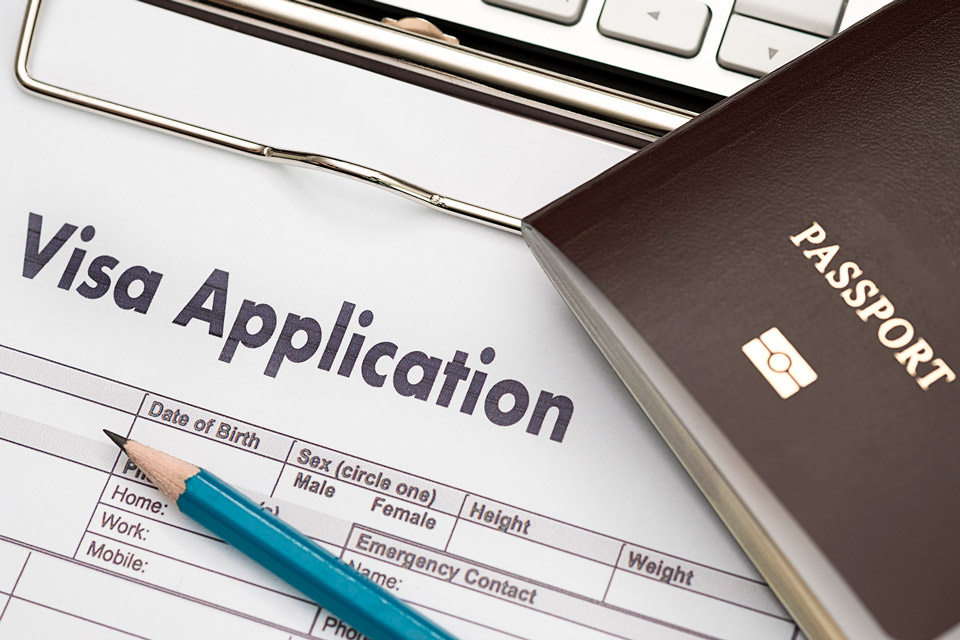
Can an Expat buy a House to Retire in Portugal?
The Portuguese Real Estate market is open to all foreign-based nationals no matter if they hail from a country within the European Union or not. Naturally, the process is facilitated when it comes to EU citizens, if only because they already have the right to reside in Portugal without having to undergo through any residency process beforehand. Similarly, expats and retirees holding Portuguese citizenship have the same rights and benefits when it comes to purchasing property in another EU country.
The Portuguese government encourages foreign investment in the real estate market, and there are no significant restrictions or limitations on property ownership for non-EU citizens. All foreign-based citizens are treated the same as Portuguese citizens when it comes to property acquisition.
Portugal follows a policy of reciprocity, granting property sale rights to citizens of countries that allow Portuguese citizens to buy property in their respective nations. This approach ensures fairness and equal opportunities for individuals from different countries in the Portuguese real estate market.
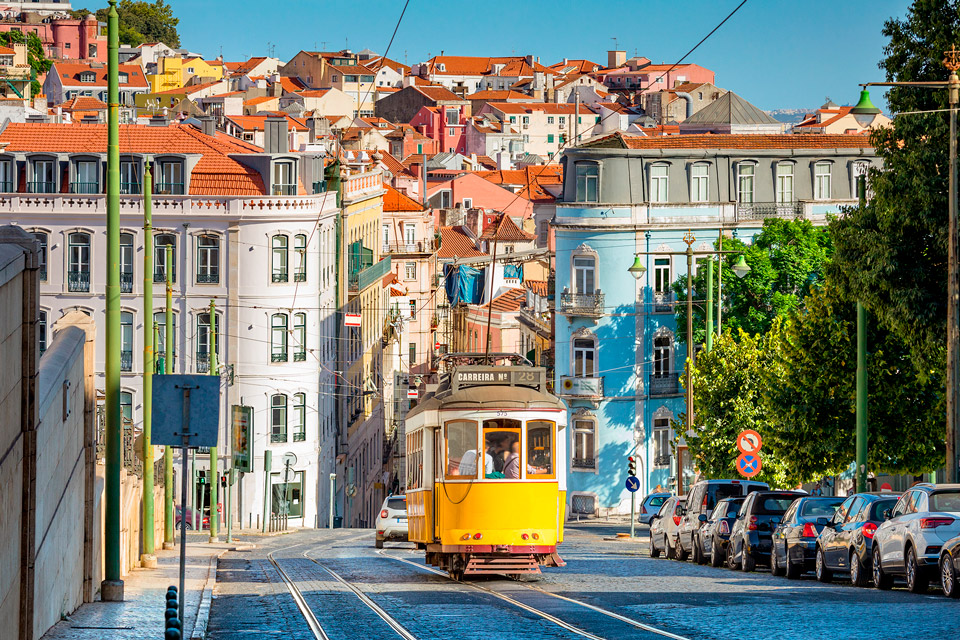
Buying Property in Portugal
When buying a property in Portugal, the process typically consists of three key steps: Reservation, Promissory, and Deeds.
During the Reservation step, a fee between €6,000 to €20,000 must be paid and the time allowed for your lawyer to complete their work is between 15-30 days after the fee is paid. The Promissory step involves agreeing on a contract and paying a second amount which is usually a percentage of the sale price that varies from 10% to 60% of the final sale price. Finally, in the Deeds step, the purchase is completed, and the property is registered under your name.
Regardless of their Residency by Investment Visa, retirees can enjoy the benefits of retiring and living in Portugal, including the freedom to travel visa-free to the European countries in the Schengen Zone. Property ownership grants the same rights and legal protections as Portuguese citizens, allowing retirees to use, rent, sell, or transfer their property under local laws and regulations.
Portugal Homes offers a wide range of properties for sale and developments, helping retirees navigate the real estate market and find their ideal retirement property to enjoy their golden years in this remarkable country.
Browse our offer of Properties for Sale in Portugal by clicking here!
Do Foreign & Expat Retirees Pay Taxes in Portugal?

Portugal has Double Taxation Agreements (DTAs) with various countries to avoid double taxation for retirees. These agreements reduce or end tax obligations on income and assets, ensuring clarity and certainty for retirees on their tax liabilities and their home country. Local property taxes like the Municipal Property Tax (IMI) may still apply. Retirees can consult with Portugal Homes’ advisory team to understand their specific obligations and maximize available tax benefits.
Overall, Portugal offers a favourable tax treatment for pensions, retirement funds, and social security benefits, making it an appealing choice for retirees seeking financial stability. Retirement funds, such as private pension plans or Individual Retirement Accounts (IRA), enjoy from Portugal's tax-friendly environment. Like pensions, these funds that are tax-exempt in the retiree's home country are generally exempt from taxation. This treatment allows them to maximize their retirement savings and ensures a higher disposable income.
Social security benefits play a significant role in retirement income for many individuals. The taxation of social security benefits in Portugal depends on the specific tax regulations and agreements between Portugal and the retiree's home country. Portugal has signed many double taxation agreements (DTA) with countries worldwide to prevent double taxation on social security benefits. These agreements ensure that retirees can enjoy reduced or eliminated tax obligations on their social security income.

How Much do you Need to Retire in Portugal?
Retiring in Portugal requires considering factors such as the cost of living, housing expenses, healthcare costs, and individual lifestyle choices. The country has a public healthcare system called Serviço Nacional de Saúde (National Healthcare Service), which provides accessible and affordable healthcare services. While it is challenging to provide an exact figure, a rough estimate suggests that a couple can live with a monthly budget of approximately €2,000 to €3,000, excluding housing costs.
The country generally offers a lower cost of living compared to many other European countries. Housing costs vary based on location and property type, while healthcare can be accessed through the public system or private insurance.
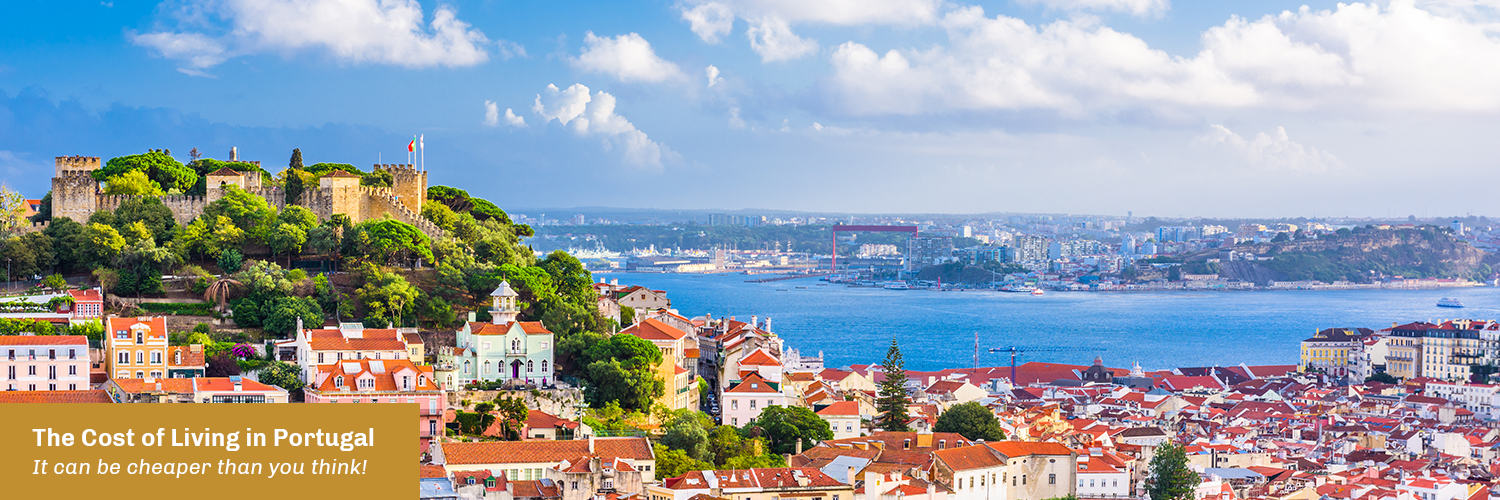
Where is the best place to retire in Portugal?
There is no number one best place to retire in Portugal – there is no place in the country that will not appeal, to some degree, to retirees. Some key locations do stand out, though, but choosing where to retire in Portugal depends on your needs, preferences, lifestyle, and priorities. Portugal Homes suggests the following attractive retirement and affordable destinations.
Lisbon
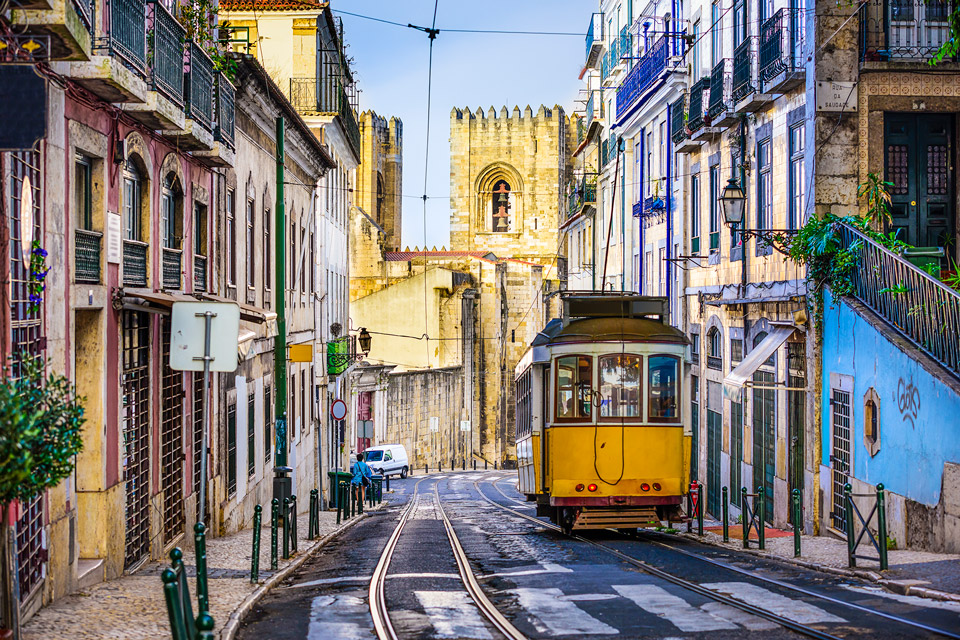
The Portuguese capital, Lisbon, is a vibrant city that offers a wide range of attractions and amenities for retirees. With its historical charm, stunning architecture, and cosmopolitan atmosphere, Lisbon provides a range of opportunities to engage in cultural activities, savour local cuisine, and explore the city's historical sites. Its proximity to beautiful beaches and coastal areas adds to its appeal as a retirement destination.
Cascais
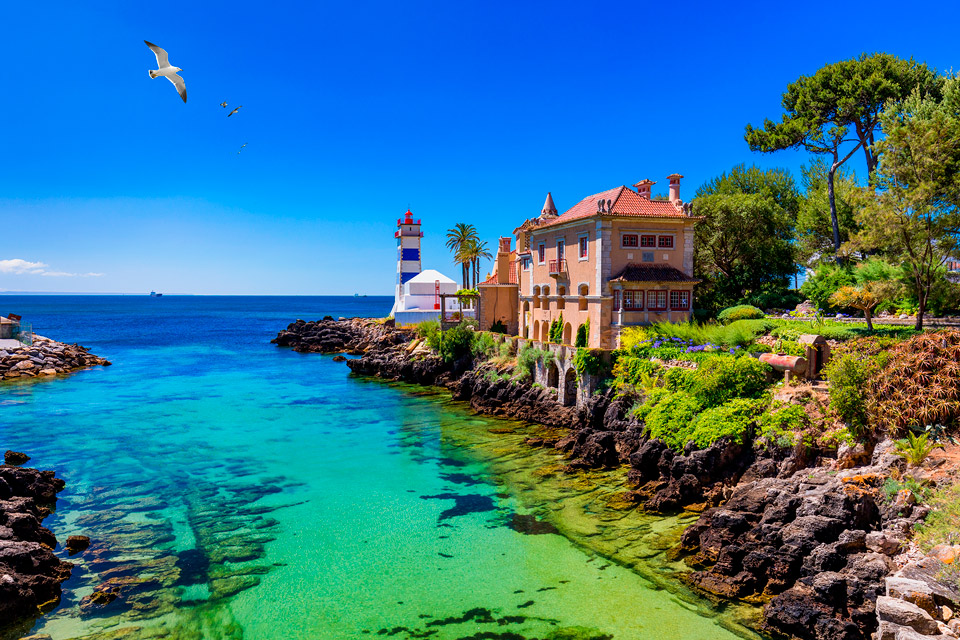
Located along the Lisbon coastline, Cascais is an excellent choice for retirees wanting to remain close to bustling, modern Lisbon, yet far enough to enjoy a calmer, quieter beach experience. Cascais has a unique, more upscale, and chic feel, and is regarded by many as an attractive retirement destination in Portugal.
Porto
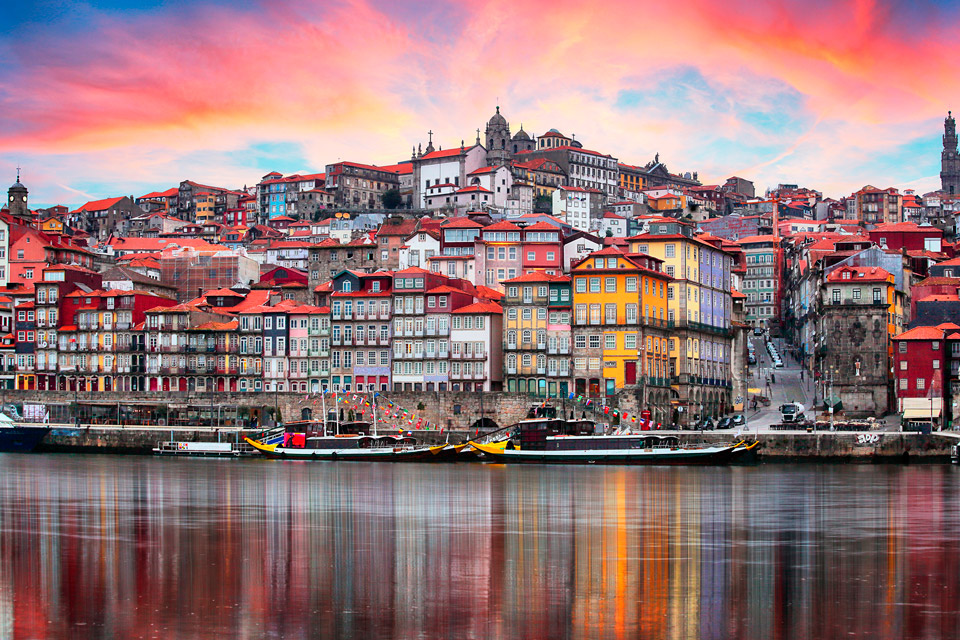
Porto is northern Portugal’s city of reference and a captivating destination known for its rich wine heritage and surrounding Douro Valley. The city offers the traditional Portuguese experience and is fully equipped with all modern amenities. Retirees can immerse themselves in Porto's thriving cultural scene, visit museums and art galleries, and enjoy walks along the scenic Douro River. With its pleasant climate and picturesque landscapes, Porto provides a delightful and fulfilling retirement experience.
The Algarve
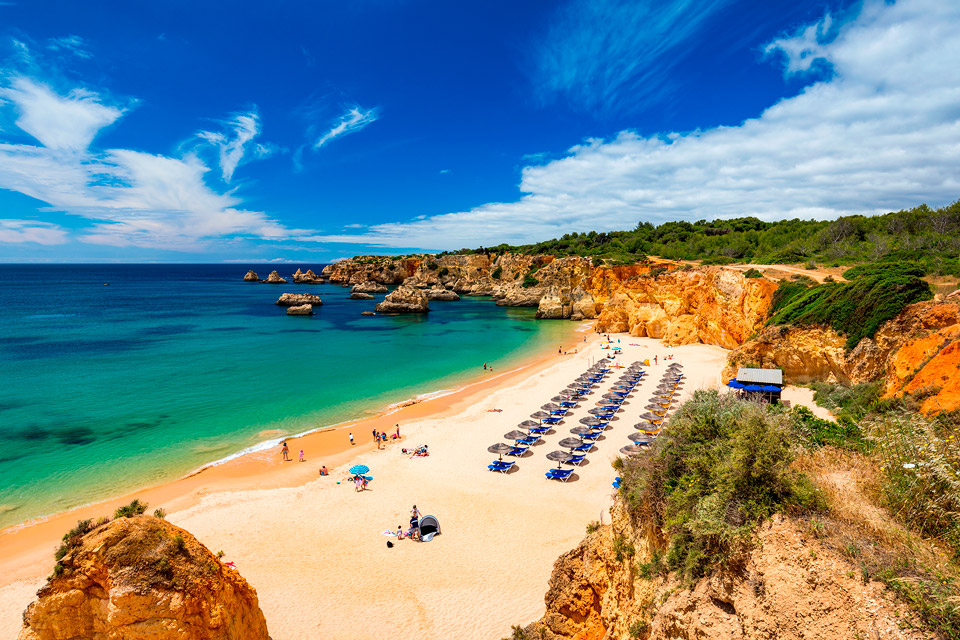
The Algarve region, regardless of town or village, is the ultimate choice for retirees seeking to lounge out in the sun, enjoy the beach and the sea, and bask in breathtaking views. It hosts one of the largest expat communities in Portugal and is the perfect destination for those seeking a relaxed, calm retirement with plenty of fun still to be had.
Silver Coast
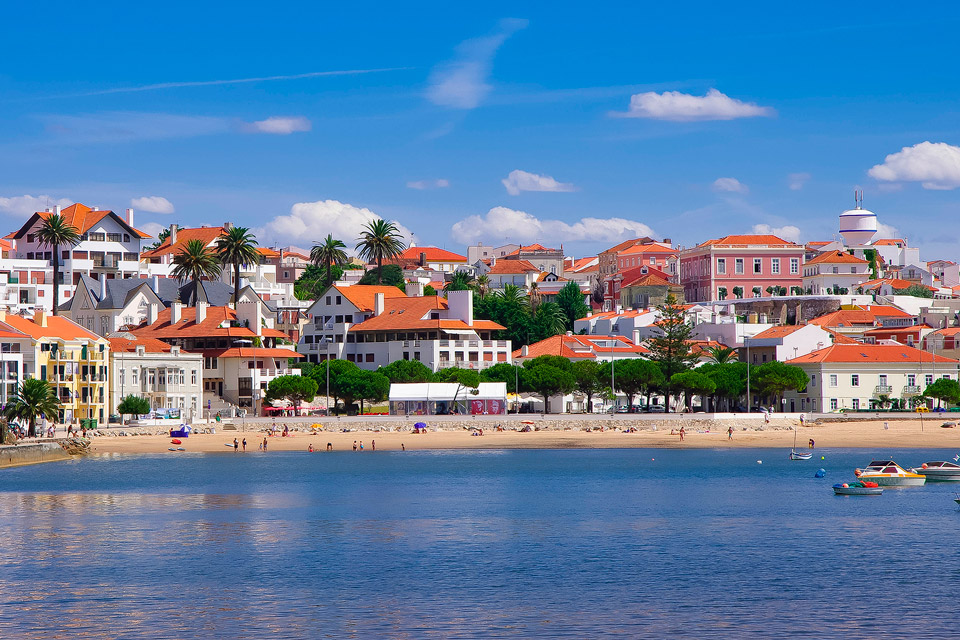
The Silver Coast stretches along the calmer, central region of Portugal, from where Lisbon ends to where Porto starts. Its name comes from the shimmering reflection of the sun on the Atlantic Ocean, casting a silvery glow on the surface of the water. The Silver Coast encompasses several charming, smaller towns, and is the perfect beach destination for those seeking to flee from the Algarve’s bustling streets during the summer. It is often claimed that it is in the Silver Coast where the real Portuguese essence can be found.
Madeira
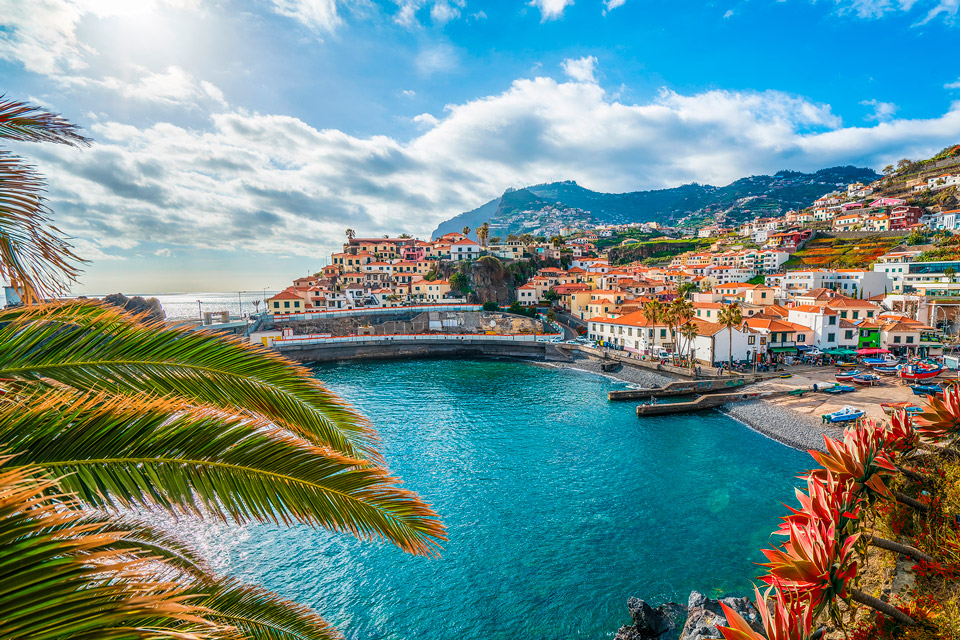
In recent years, the Madeira islands have become an expat haven - and with good reason: a mild climate, captivating natural beauty everywhere, from green landscapes to the endlessness of the ocean, hiking trails, and a warm-hearted community. No wonder retirees keep on choosing Madeira as their destination.
Azores
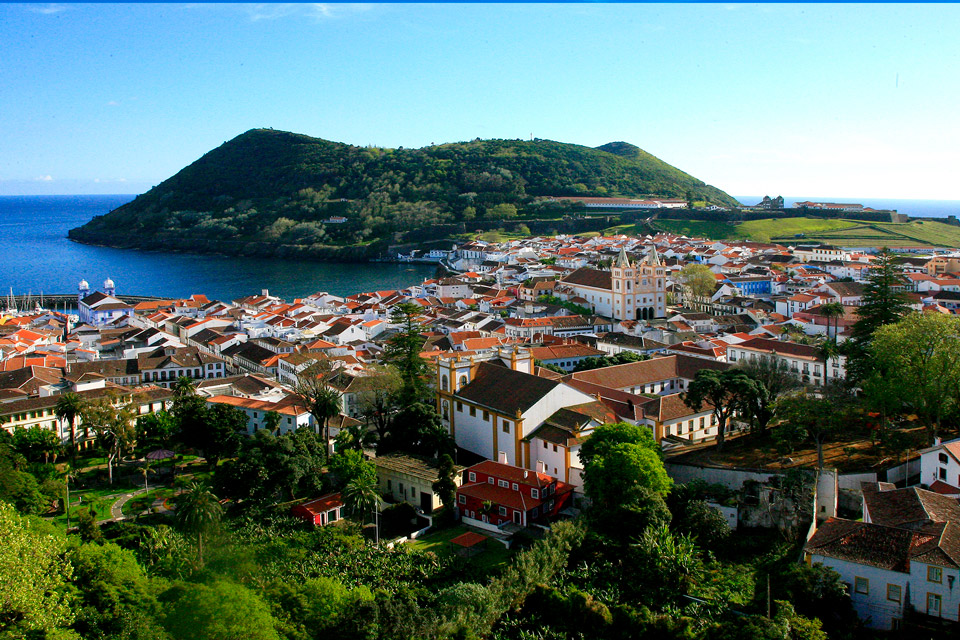
The Azores archipelago brings in 9 different, stunning islands, all yours to explore after retiring to Portugal. The Azores are a constant reminder of the natural beauty of our world, with stunning vistas to be found at every corner. Volcanic craters, two-coloured lakes, lush greenery, hiking trails, and hot springs – the Azores epitomizes the idea of a tranquil, idyllic setting for retirement.
How Does the Portugal Health Care System Work?
Retirees in Portugal can use the healthcare system, SNS, which offers comprehensive medical services. Registering with a local health centre and obtaining a user card is necessary to access the SNS. While the public healthcare system provides affordable healthcare, retirees may consider obtaining private health insurance for more coverage, choice of doctors, and shorter waiting times. Private health insurance complements the public system and ensures they have comprehensive healthcare options in the country.
Is Healthcare Free in Portugal?
Healthcare in Portugal is subsidised and accessible for residents, including retirees. While not free, the costs are lower compared to many other countries. Residents have access to a wide range of medical services, consultations, emergency care, hospitalization, and prescription medications at reduced rates.
Extra costs may apply for certain services, leading some residents to opt for private health insurance for faster or specialised care. Portugal's healthcare system ensures affordable and comprehensive healthcare for retirees, contributing to their well-being and quality of life during their retirement years.

Can I go to the doctor if I retire in Portugal?
You will have access to healthcare services, including the ability to visit doctors and receive medical care. The healthcare system in Portugal, known as SNS, provides healthcare services to residents, including retirees. To access medical care, you need to be registered with a local health centre and get a Cartão de Utente. This card allows you to schedule appointments with general practitioners (médico de família) and access a wide range of healthcare services within the SNS.
Doctors are well-trained and provide quality care to patients. They may refer you to specialists or order diagnostic tests if needed. It is important to note that if you require specialised treatment or elective procedures – you may be subject to waiting lists within the public healthcare system. Overall, Portugal's healthcare system provides retirees with options to receive comprehensive medical care and support their well-being during their retirement years.
What are the pros and cons of retiring in Portugal?

Retiring in Portugal offers a host of benefits for retirees, outweighing any minor challenges. While embracing the advantages and managing the drawbacks and expectations, Portugal is truly the ideal place for retirement.
Pros
Retiring in Portugal offers retirees a favourable climate, affordable cost of living, high quality of life, a comprehensive healthcare system – plus so much more. The country’s safe environment, well-developed infrastructure, and rich cultural heritage further enhance the retirement experience. The country's favourable tax treatment of foreign income and pensions provides financial advantages, combining a desirable lifestyle with practical benefits, and making it an appealing choice for those seeking an enjoyable and worry-free retirement.
Cons
Despite being one of the best places to retire to, Portugal, like any other country, has its downsides. The Portuguese are the 8th most proficient English in the world, though this tendency is found mostly among the younger generations living in city centres. The language may prove a barrier if retiring to a more interior location. Dealing with visa and residency permits-related bureaucracies may be a hindrance, but one that is easily solved with Portugal Homes’ assistance and expertise in handling such matters.

Frequently Asked Questions
Should I retire in Portugal or Spain?
Portugal is the obvious choice. Besides the several advantages as a retirement destination by itself, Portugal has a lower cost of living, a comparable, if not warmer climate, attractive tax incentives, and a much higher English proficiency level.
I am Retiring in the Algarve. How can I Move Around?
Transportation options in the Algarve provide retirees with convenience and flexibility as they navigate the region. Whether by private vehicle, public transportation, taxi, or even cycling and walking, they can explore the area's picturesque towns and villages. Buses and trains, ensure easy access to major destinations. With dedicated cycling lanes and rental options, retirees can also enjoy the region's pleasant climate while staying active.
Is Healthcare in Portugal Free?
Portugal's healthcare system, known for its quality and accessibility, provides comprehensive medical services to residents and visitors. While not free, the National Health Service (SNS) ensures universal coverage through public hospitals and clinics. User fees and co-payments may apply, but private health insurance is available for extra benefits and quicker access to certain treatments. Retirees from EU/EEA countries can use the European Health Insurance Card (EHIC), while reciprocal agreements extend healthcare access to retirees from select non-EU countries.
Why Do Many Expats Choose to Retire in Portugal?
To simply put it, Portugal has it all in one single country. The days are long and sunny in Portugal, groceries are more affordable, and tax exemptions are aplenty. You can walk out alone at night without having to worry or keep an eye out, and there is an abundance of activities to do. Another way to describe it would be: Portugal provides the ideal backdrop for a high quality of life at an affordable rate.
Is It Safe to Retire in Portugal?
Yes. Portugal is one of the safest and most peaceful countries in the world. The country is a safe and peaceful place, with a low crime rate and a stable political climate. The friendly and welcoming nature of the Portuguese people facilitates integration into the local communities.
How Much Money Do I Need Per Month?
There is no definitive answer to this question. The amount needed to enjoy a worry-free retirement in Portugal varies based on several individual factors and your lifestyle. As a general guideline, a monthly budget of €2,000 (around USD $2156; £1715) to €3,000 (around USD $3233; £2570), excluding housing costs, can provide a more than comfortable life for a couple.
Is Learning the Portuguese Language a Problem?
In-depth learning of the Portuguese language is not necessary at all to live in Portugal. Due to the country’s high level of English proficiency, it is easy to communicate with the local communities. However, learning even the basics of the language will go a great mile, as it reveals a cultural appreciation for the people and the country, something which will only benefit you in the long run of your retirement in Portugal.
How Can I Retire to Portugal from the USA?
Retiring from the USA requires obtaining a long-term residency visa, like the Golden Visa, the D2 Visa, or the D7 Visa. Expert advisory services to better assist you with your relocation is recommended, something which is easily accomplishable with Portugal Homes’ services.
Retiring to Portugal from the UK (post-Brexit)
After Brexit, UK citizens can still retire to Portugal, but they need to navigate new requirements. As third-country nationals, UK retirees must apply for a residency visa, and become Portuguese residents to be able to retire to Portugal. Understanding the new rules, documentation requirements, and criteria is crucial, and seeking guidance from Portugal Homes’ professionals is advisable.
Can you Retire in Portugal from Canada?
Canadian citizens can retire in Portugal by obtaining the necessary visa, such as the Residence Visa for Retirees (D7 Visa), demonstrating financial stability, and considering healthcare coverage. Assessing financial situations, consulting with professionals, and understanding tax implications are crucial. Embracing Portuguese culture and learning the language enhance the retirement experience.
Can I Receive my Pension in Portugal?
As a retiree, you can receive your pension in Portugal. The process of transferring your pension to Portugal involves a few important steps. It is advisable to contact your pension provider or financial advisor to inform them about your plans to retire and inquire about the available options for receiving your pension abroad. There may exist currency conversion fees or potential tax implications that may arise during the transfer process. Your pension provider and seeking professional financial advice will ensure a smooth transition and uninterrupted receipt of your pension funds while enjoying your retirement in Portugal's welcoming environment.
Can I Bring My Pet with Me When Retiring to Portugal?
When retiring to Portugal, you can bring your pet with you by following the country's regulations for pet importation. EU citizens need a European Pet Passport with microchipping, rabies vaccination, and a health certificate from a veterinarian. Non-EU citizens may need extra steps, such as a rabies antibody blood test. It's crucial to research and follow Portuguese authorities' guidelines and consult with your veterinarian. The Directorate-General for Food and Veterinary (DGAV) in Portugal provides comprehensive information on pet importation, including necessary forms and requirements. With proper preparation, you can ensure a smooth and safe transition for your beloved pet.
Are there English-Speaking Communities or Expat Networks in Portugal?
Portugal has thriving English-speaking communities and expat networks, particularly in popular destinations like Lisbon, Porto, and the Algarve. These communities offer social events, cultural activities, and support networks for integration. Online forums and social media groups provide more resources. While English is spoken in tourist areas, learning Portuguese fosters deeper connections. Engaging with both expats and locals enhances the retirement experience.
How is the Weather in Portugal for Retirees?
Portugal's pleasant Mediterranean climate offers retirees mild, rainy winters and warm, sunny summers. Coastal regions, like the Algarve, enjoy even milder temperatures year-round. Summers are hot and dry, reaching the high 20s to low 30s Celsius (mid to upper 80s Fahrenheit), while winters remain mild, rarely dropping below 10 degrees Celsius (50 degrees Fahrenheit). Embrace the enjoyable weather and engage in outdoor activities throughout the year.
What Recreational Activities Are Available for Retirees in Portugal?
Portugal offers retirees a wide range of recreational activities, including relaxing on beautiful beaches, playing golf on world-class courses, hiking through stunning landscapes, exploring cultural heritage, and indulging in delicious cuisine and wine tastings. With its diverse offerings, retirees can enjoy a fulfilling retirement filled with leisure, exploration, and appreciation of the country’s natural and cultural treasures.






